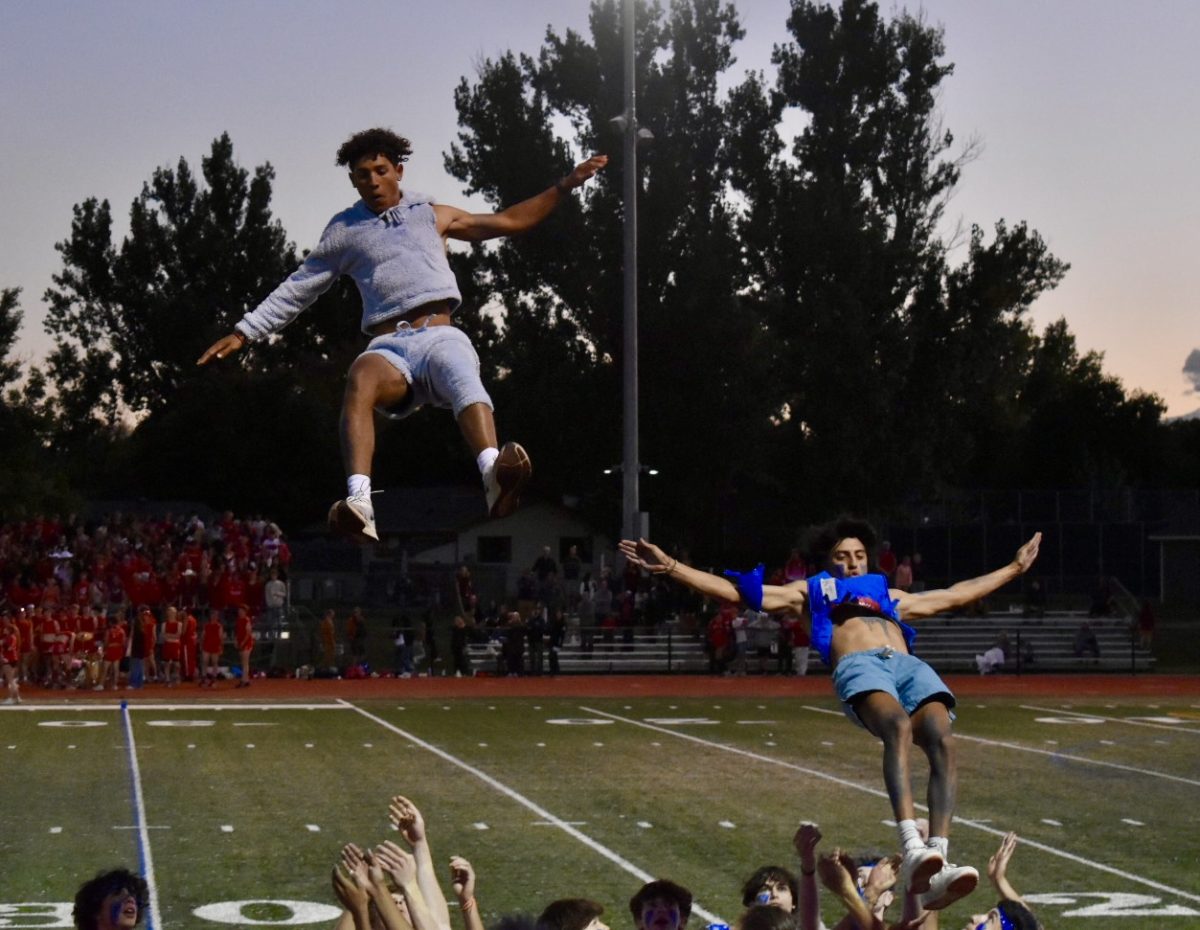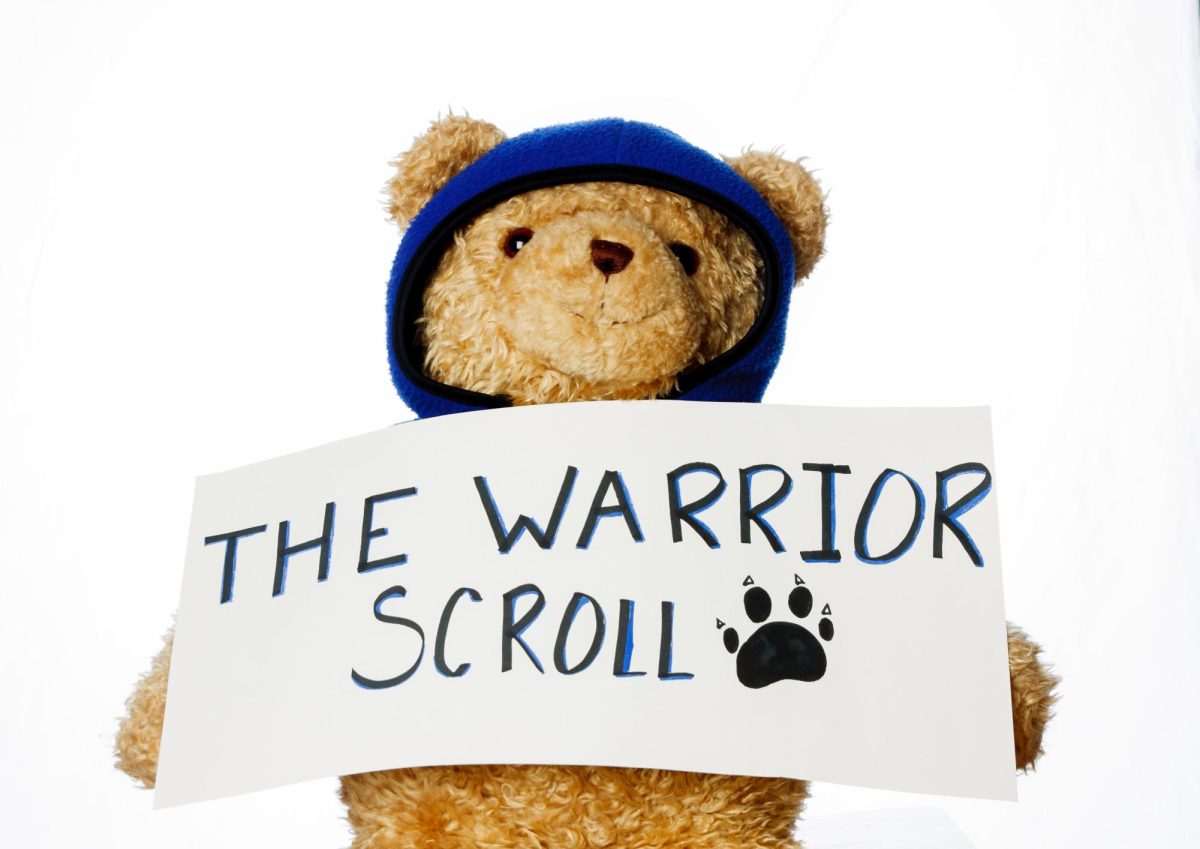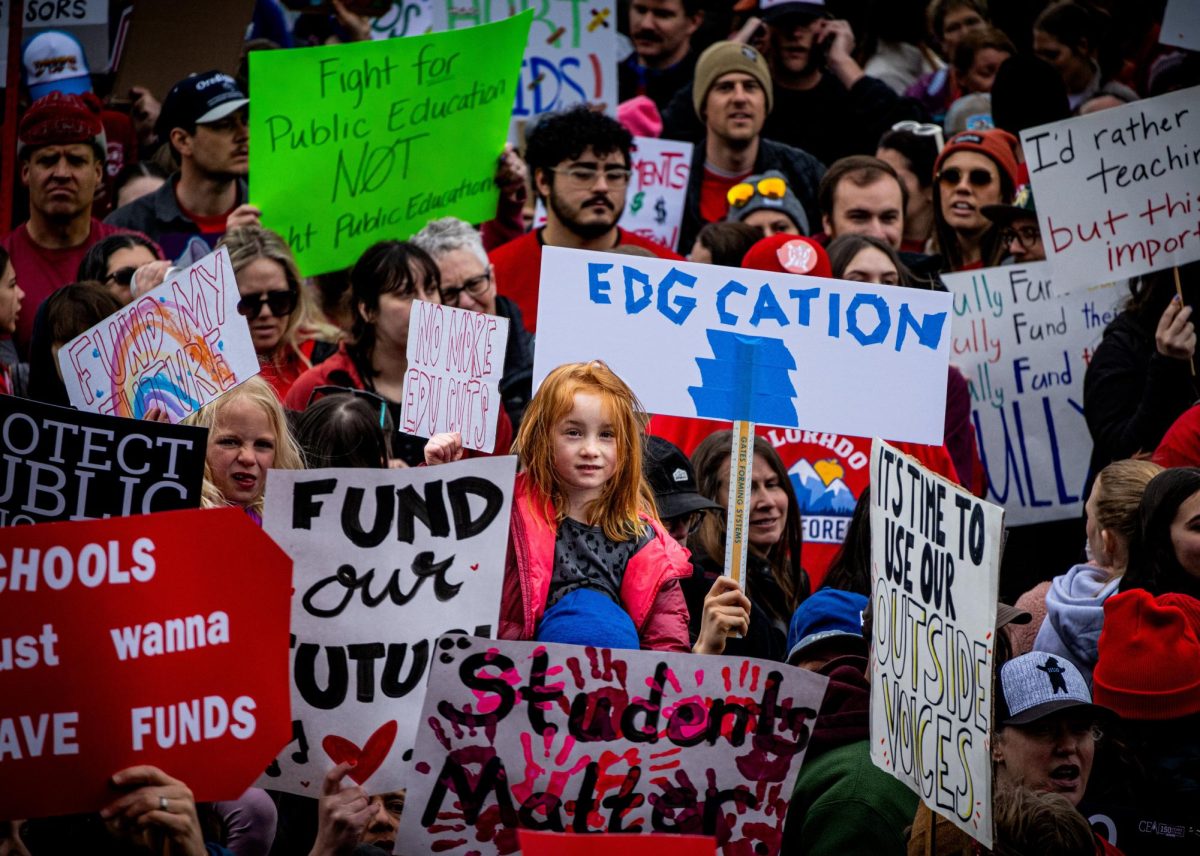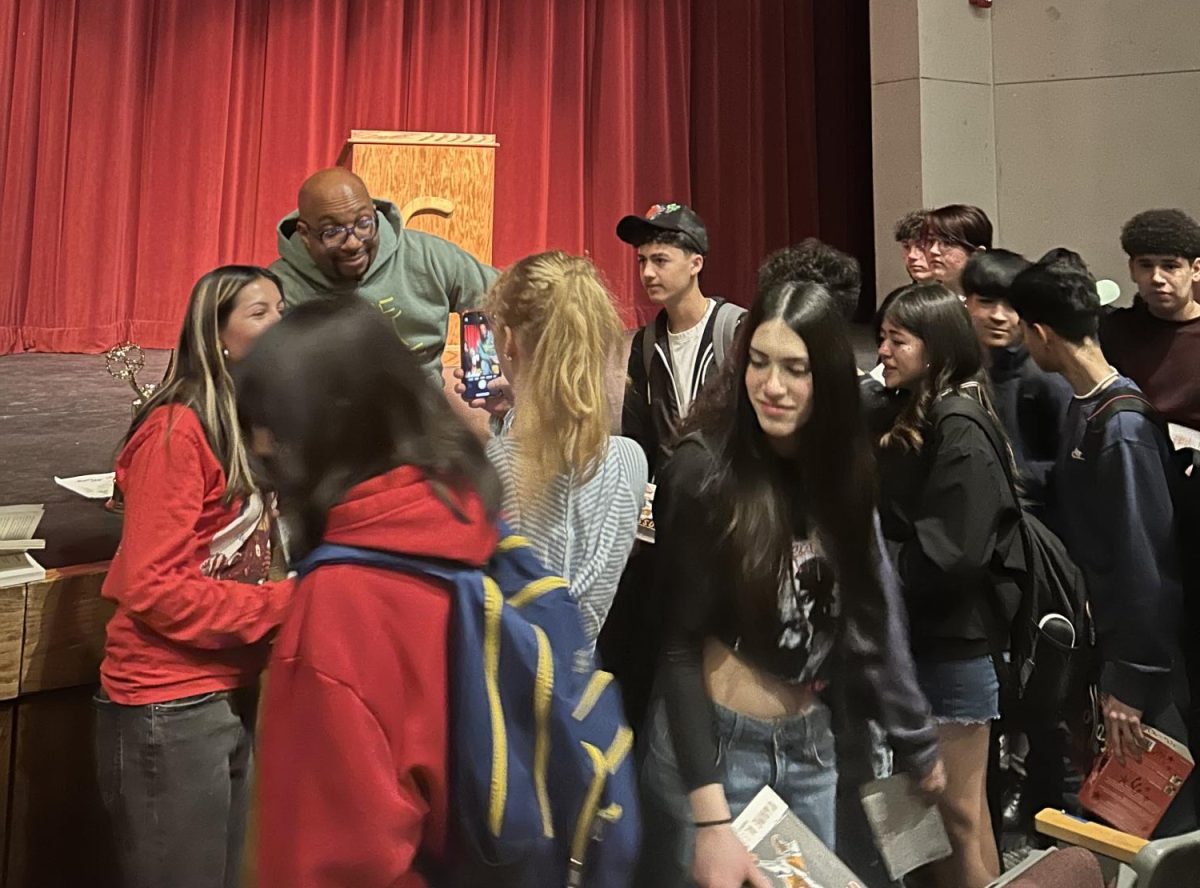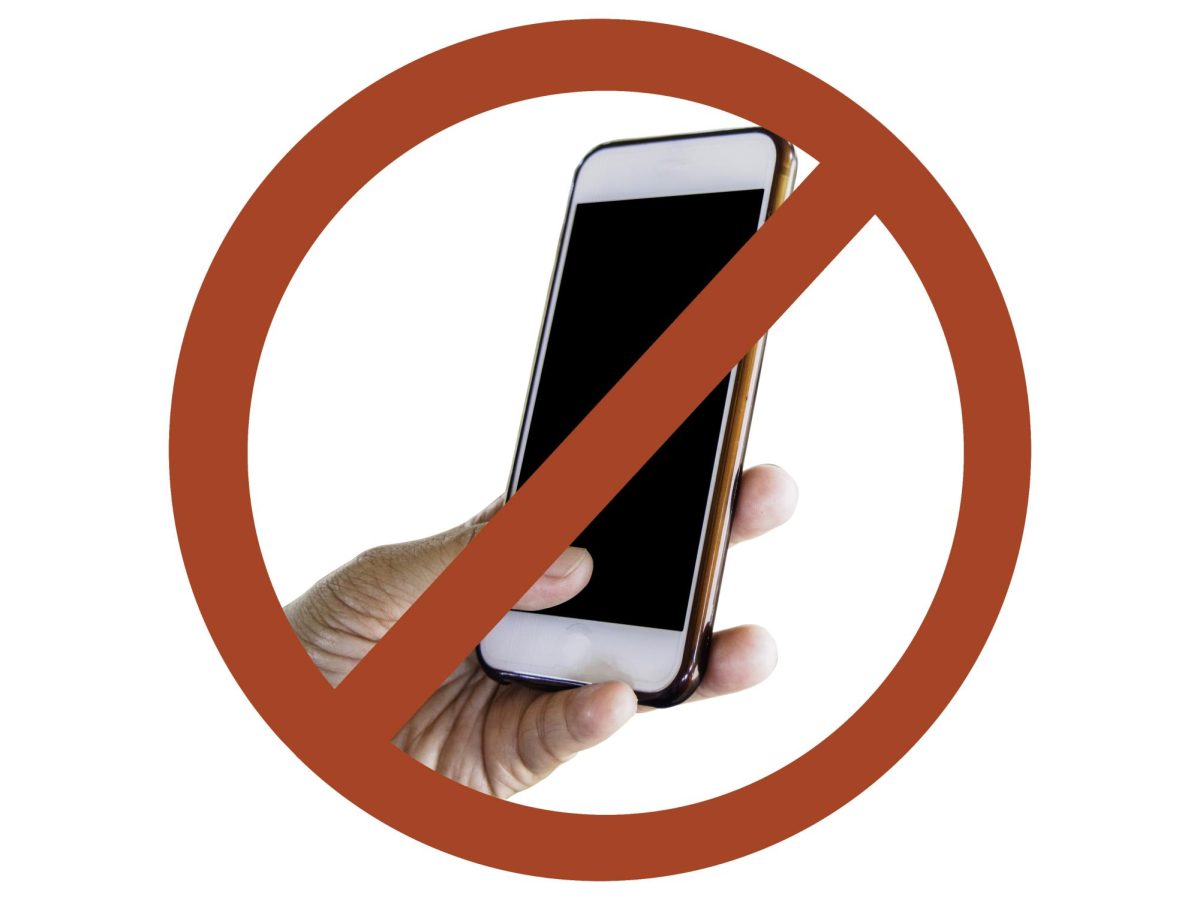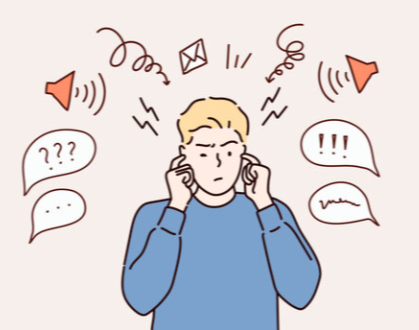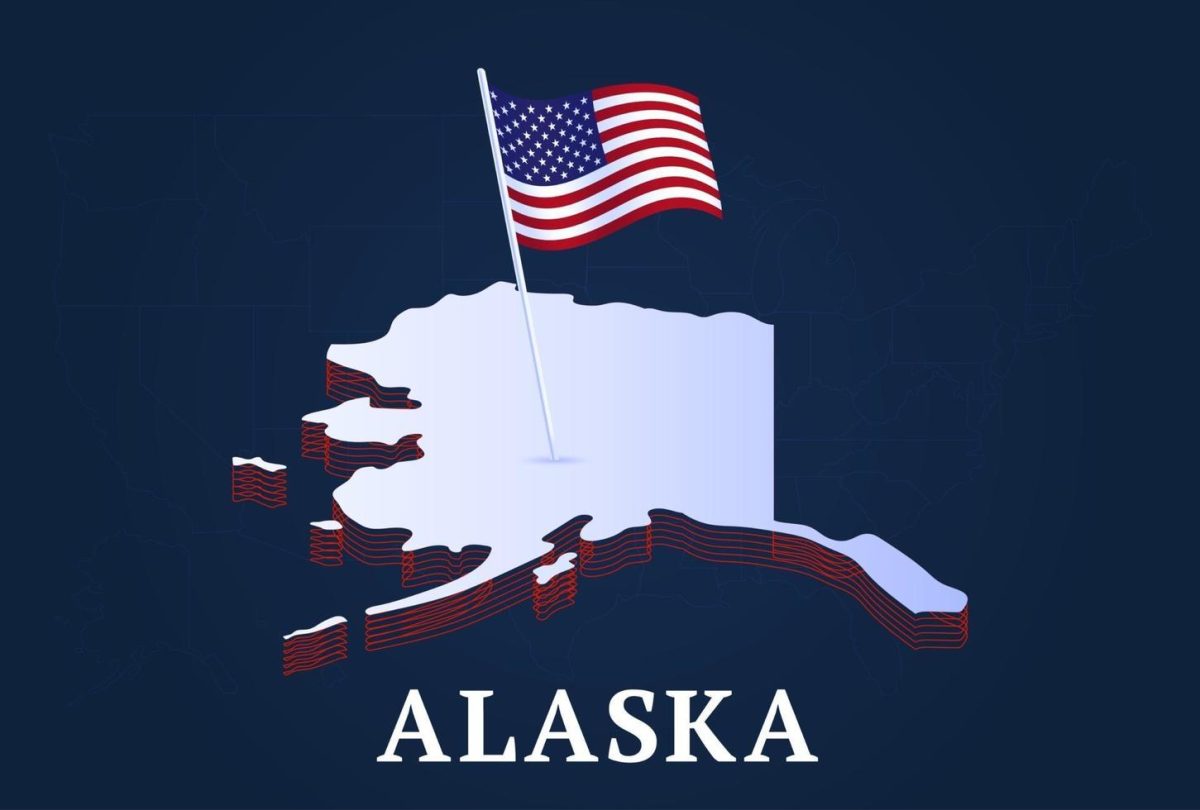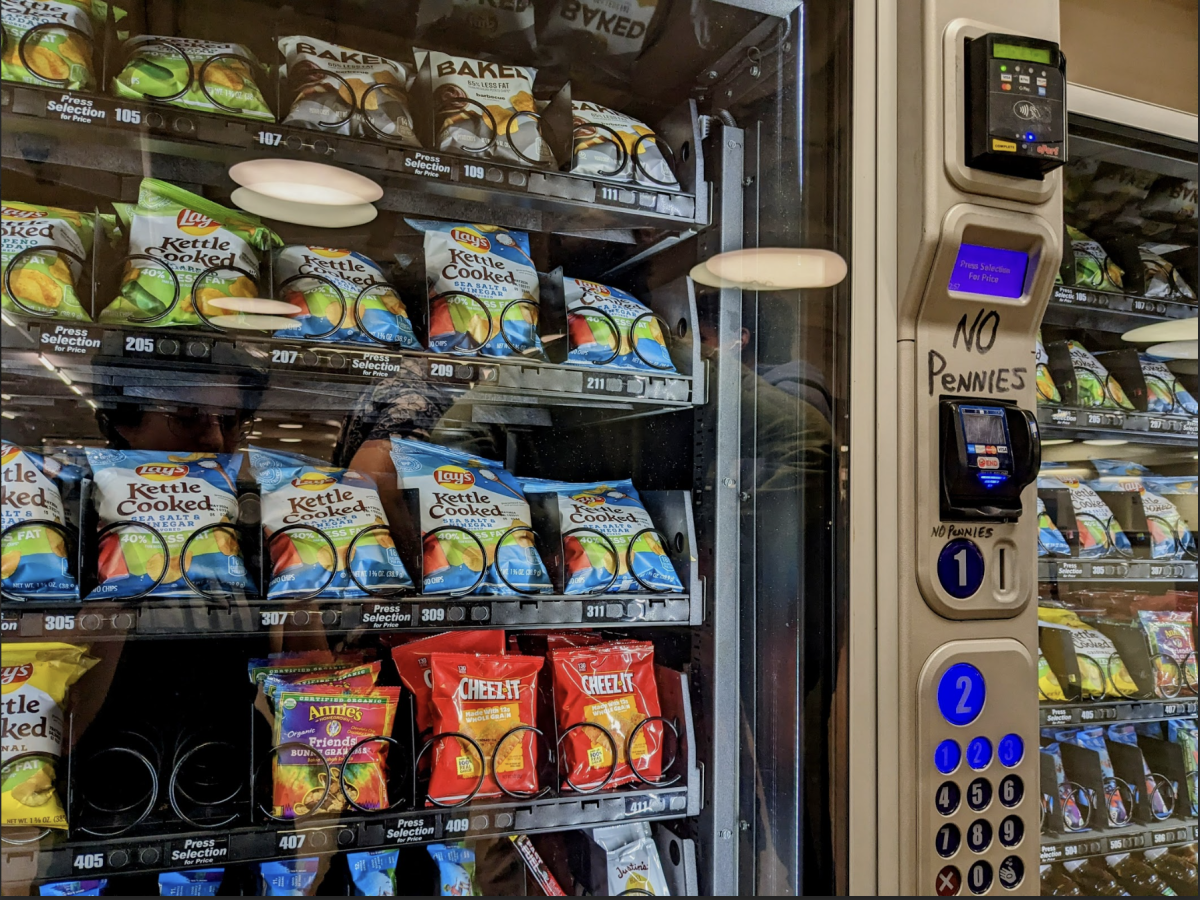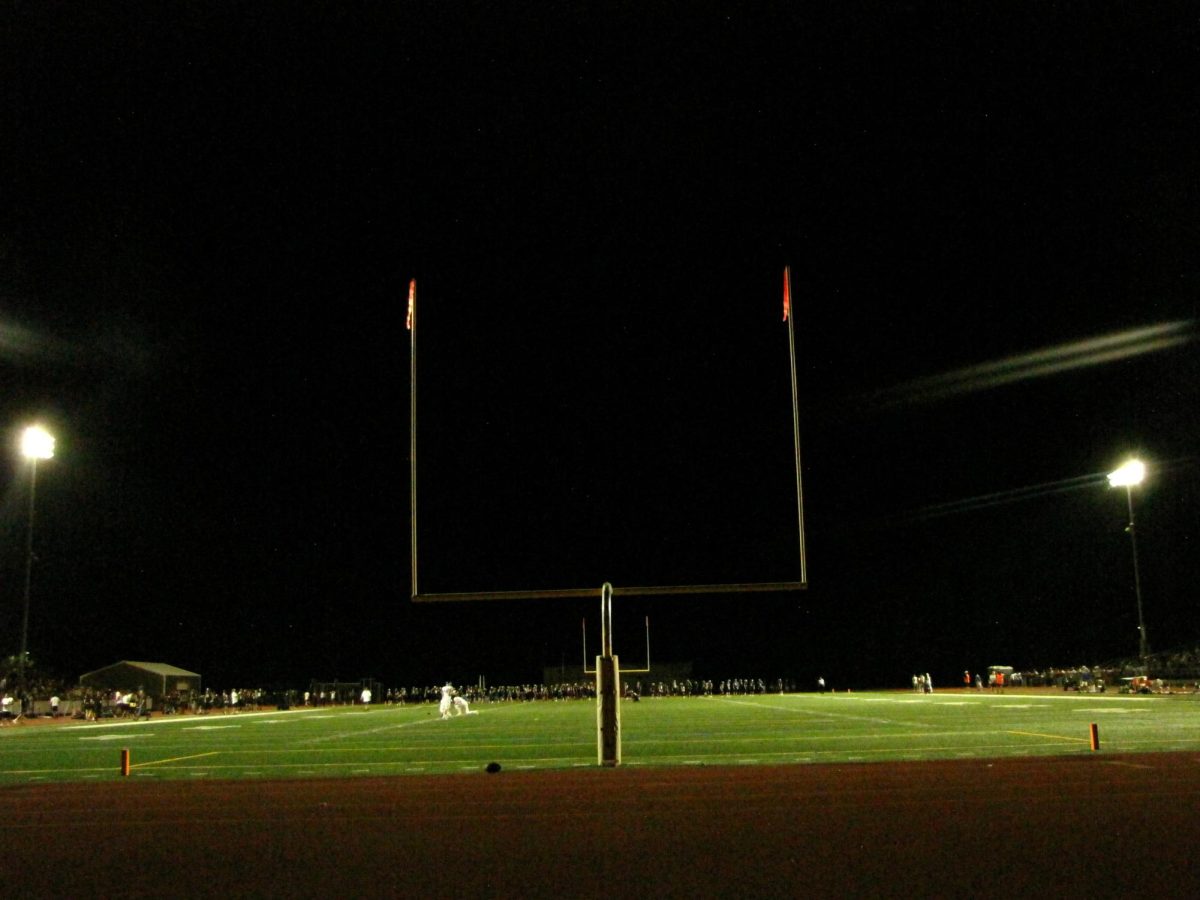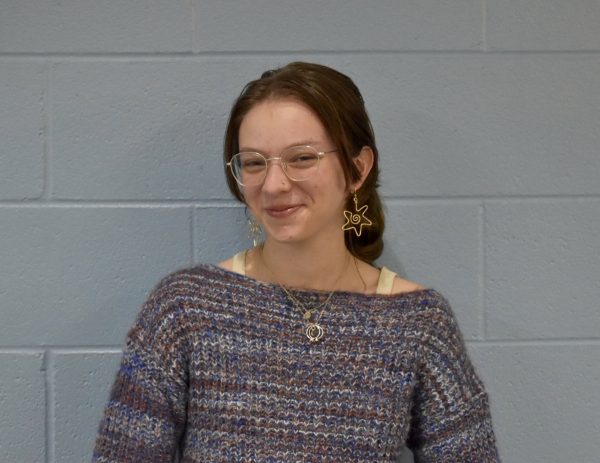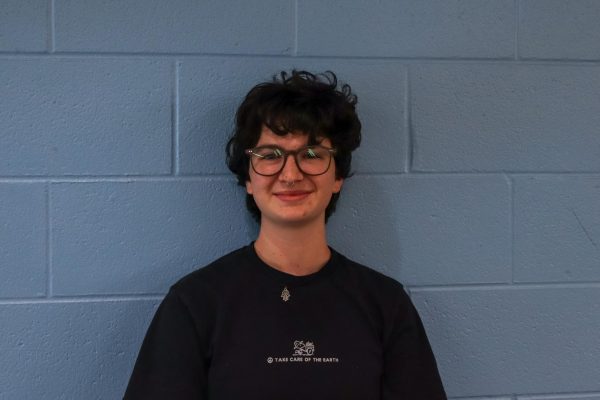In exactly two weeks, a journey that began with an awkward slideshow will end in the rite of passage for the class of 2024. Seniors will celebrate their achievements surrounded by friends, family, and the teachers who have supported them through the abnormal version of the high school experience that belongs only to this class: starting high school via zoom call.
On August 4th, 2020, BVSD announced their decision to begin classes online, planning to continue online learning “at least until September 22nd” (as reported by the Daily Camera.) That plan ended up continuing until the end of the 20-21 school year, with hybrid classes being implemented about halfway through the year.
That first year was “pretty much nonexistent,” said Lydia Szabo (‘24). She described struggling to understand the material, connect with peers, or even just feel like a student at all. “I was not a great online student…I was doing other things. I would clean my bike, I would bake, just because like, I was at home, there were other things I wanted to be doing. I didn’t feel like I was learning, so I didn’t feel like I had to be on.” She stated that things improved slightly following the implementation of hybrid learning, but the situation was still certainly less than ideal. Although the decision was necessary to protect the safety of students, staff, and their families, it caused unavoidable damage to students’ experience. Hailey Peake (‘24), who remained online for the full year, said “Overall, it just felt like kind of a free year…it felt optional.” She did her best to keep up with work and engage in her classes, but it was an uphill battle. Students felt lonely, checked out, and unmoored.
3 years (and 9 months) later, Szabo, Peake, and the rest of their class are eagerly preparing to graduate. But how did spending that first year online impact the rest of their experience at CHS?
While the effects of online school were obvious during the 20-21 school year, many students and teachers alike believe that the scholastic effects of the pandemic reached far beyond it. “Even though it happened 4 years ago, it’s still a problem… We don’t talk [enough] about the repercussions of what happened that year,” said Peake. “A lot of people just had a really tough year…it was like a weird [mental] pit stop.” In areas ranging from academics and mental health to the level of community amongst the senior class, it’s clear that the pandemic had a noticeable effect on not only the past experience of students but their present and future experiences as well.

The most obvious category in which effects were felt is academic success. Countless research studies published in the years since the height of the pandemic cite loss of learning, higher instances of consistent absenteeism, and lower test scores across the country following the implementation of online learning. A study published by the Center for Reinventing Public Education stated that older students “deserve the most concern” in regards to pandemic setbacks, because they have had less time to catch up before graduation.
Laurel Wood (‘24) said she had a hard time during freshman year, and even dropped a class as a result of the structure of online learning. “It did impact me the rest of my time here… the start of high school is when you’re on your own, and when you don’t have people to help you at the beginning it’s hard to start after that when you’re kind of [already] supposed to be self-sufficient.” Wood was diagnosed with ADHD during her sophomore year, but prior to that diagnosis (and the support that came with it), she had a much harder time keeping up with schoolwork. Online schooling, which removed the majority of support that comes with a classroom environment, only exacerbated those challenges. “It was just so easy [to fall behind]; teachers couldn’t talk to you after class, they could ignore emails…I was left to myself and I didn’t feel like I had the tools I needed.” Falling behind, she said, has become somewhat of a routine since then. Others shared similar experiences. Ink Gibson (‘24), who is now in the IB program, said they have noticed some gaps in their knowledge. “There are definitely a lot of skills that I didn’t [learn properly] freshman year,” said Gibson. Szabo cited gaps in math and science classes. “To not have that baseline …was definitely a problem,” she said.
Mental health is the other most frequently considered effect. All students interviewed stated that online schooling/the pandemic had a significant impact on their mental health. “Just during Covid in general I had developed extreme social anxiety… There was only a quarter of our class that went to school [in person] when I was there, but I just was very anxious all the time about what everybody was thinking about me,” said Wood. That anxiety did ease with the return to full time in-person learning, but it took time. “Senior year is the first year that I’ve been [significantly less socially anxious] and the first year that I’ve actually just like experienced high school as a whole,” she said. She was hardly alone in her anxiety: According to the World Health Organization, “ In the first year of the COVID-19 pandemic, global prevalence of anxiety and depression increased by a massive 25%.” This has also been visible more broadly at CHS. Ms. Gance, who teaches various senior L.A classes, said she has noticed a significant increase in the amount of students who have been struggling with mental health. “Panic attacks, different kinds of things like that, have been [happening] a lot more… And we now have a [policy where students can] take mental health days off, which we never had before,” she said. The school also established the Wellness Center, a space for students to go for mental health support during the school day. For some, the pandemic brought certain positive mental health effects, however. Peake said that the year at home really enabled her to get to know herself, away from the social pressures of other peers. “It was nice to stay home and figure out who I am and what matters to me as a person instead of going along with [what other people were doing.],” she said. “I felt like I was more comfortable with myself when I came back.”
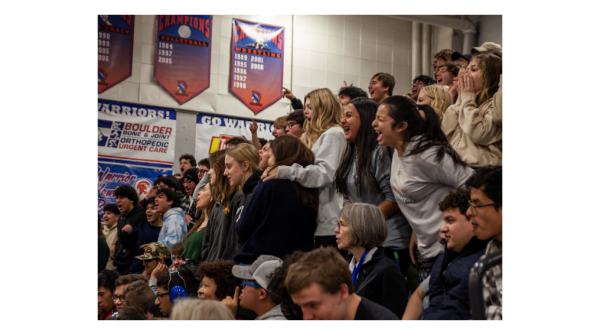
But by far the most underestimated aspect of the pandemic was the impact it had on the social dynamics of not just individual students’ lives, but the entire class as a whole. Obviously, socializing during online schooling was extremely limited. “Nobody ever talked, unless they had to. Every time you got the chance to talk with a peer it felt like a business call,” said Wood. Some already had friends that they were able to stay in touch with, but the overall lack of interaction during that year – the foundation for all those that followed – has been felt during the rest of these students’ time at Centaurus. “I don’t know how it is for the average [high school senior], but for me, I don’t really feel connected to our class,” said Gibson. “I do think that we definitely missed out on some of those ‘canon’ experiences of being a freshman…There’s people that I see now as a senior that I didn’t know were in my class, and I think that probably has something to do with online school. You just don’t see faces, you know?” They tried emailing peers to make friends, which they said was effective “about 50% of the time.” Like many others, Gibson really tried to prioritize making connections after that year. “Leaving online school and transitioning [back in person] I think I focused a lot on my social life, almost at the expense of my academic life…I cared more about the connections that I made and the experiences I had with other people more than my own academic growth.” Szabo said that, returning from online, making friends was somewhat simpler because everyone was very eager to bond with one another. Now, in their final weeks, she’s felt some of that energy return. “I feel like everyone is being a lot more friendly with their fellow seniors … and I can’t tell if that’s a ‘We did covid together, so this is a big deal for us’ thing or if its a ‘I’m so glad to have done these last 4 years with you guys’ thing. But I can definitely tell that the entire senior class wants to [do more things] and I think that’s unique.”
The class of 2024 is also notorious for having low levels of school spirit, a phenomenon that potentially resulted from the missed year. The seniors are not unaware of this. “I’d say freshmen and sophomores kind of don’t have that much spirit, but they have more spirit than the seniors…juniors, obviously, are gonna have a bit more spirit than us because they had their freshman year. …We got one assembly, and it was online.” said Peake. “We didn’t get that intro to get excited for high school…we got the school work, we didn’t get the fun stuff.” Peake, who’s been a member of Student Council all four years (and was even a member of her middle school council prior to that), stated that there has been numerous conversations and brainstorm sessions within StuCo to try and mitigate this lack of spirit. “When I hear people talk about ‘Oh seniors don’t have spirit blah blah blah’…. No, we do, I’m trying! But It’s hard to get people excited for high school their last year.”
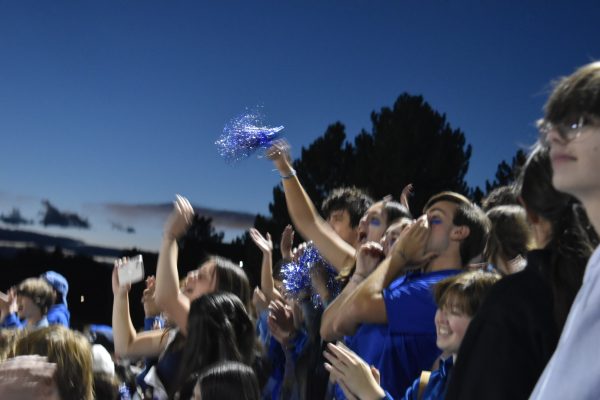
Several stated that they didn’t really start experiencing high school until they were an upperclassman. “I didn’t realize CHS was fun until junior year,” said Szabo. “I was really sad…I felt like I’d kind of run out of time by the end of [that year].” She’s tried to make the most of it, participating in Powder Puff both years, attending almost every single football game, doing senior assassin, etc. “It’s more fun to do high school if you’re DOING high school,” she said. Wood didn’t really realize that fact until this year. “Sophomore year…I don’t really remember. And then junior year was when masks [came off] and I still wasn’t super into sports or participating in school activities. So senior year was the first time I actually felt like I went to high school high school,” she said.
Another side effect is what Peake calls “Peter Pan syndrome.” “I kinda have to keep reminding myself that this is the last time I get to do this,” she said. “I keep thinking ‘oh I have more time,’ and it’s like, no babe, this is it.” She said her entire experience has felt delayed by a year. “My sophomore year felt like my freshman year, my junior year felt like my sophomore year, and I feel like I still have one more year, but I don’t.”
Several students stated that it was difficult to pick apart which aspects of their high school experience were Covid related and which were just normal features. However, Ms. Gance, who has been teaching seniors at CHS for 19 years, verified that some aspects were definitely abnormal. “I hear a lot of ‘they’re a senior?’ or ‘have you been here the whole time?” She said that the overall social connection is very different than in years passed. “The amount of people that feel alienated is a lot higher. What normally would be right now a huge celebration amongst a big group has dwindled down into lots of little micro groups,” she said. A lot more students seem to be at school only out of obligation rather than any sense of connection. “Before, when powder puff would come, more people would be really really involved. Things that had a lot higher participation have not so since then. A lot of people are very ‘I’m here for the day, I’m done.’ or they’re in a [specific extracurricular] and they’re in that realm but they don’t go [beyond it].” She believes this is caused by a variety of Covid-related factors; for example, the fact that many students did not get their licenses at the age of sixteen. “I think that since Covid, a lot of people were like ‘I don’t need to drive’ and therefore are not having their license while their seniors, and it makes it a challenge for friend groups.”
She’s noticed plenty of differences within her classroom as well. “My biggest thing is the plagiarism piece,” she said. “I think that during Covid so many people…may have gotten used to being able to take the ‘easy way’ and I have unfortunately seen that as a huge problem, especially with the increase of AI.” Earlier in the year, several students in one of her classes used AI to write an essay; she then switched her classes to strictly handwritten essays.
Gance also stated that the attitude of the class of 2024 differs from that of previous classes. “I think that a lot of people still have this entitlement piece about them, and I think it’s going to be really hard when they go to college…some people are gonna have a hard transition.” She has repeatedly been told to go easy on her students because of the pandemic. “My philosophy has always been that I’m going to [hold my students to high standards] instead of setting the bar [low] and then being really excited when you hit that low bar.” For the most part, her students have been able to meet her high standards, pandemic and all. “Colleges haven’t reduced their thresholds or what their requirements are because of Covid; just because some of the other schools or teachers have doesn’t mean that we should be doing that. I think that more teachers need to be holding kids accountable,” she said. She’s had many recent alumni tell her that, aside from her class, they were completely unprepared for college.
Peake also feels unprepared, but at more of an emotional level. “I feel like I’m a junior…I’m excited to go to college and I’m excited to get that freshman year in college because it’s like I’m gaining what I missed, but I…don’t feel ready to graduate. Which sucks because I should be like ‘heck ya, I’m a senior, get me out of here’ but I don’t feel that way,” she said. That’s not the case for everyone, however: there’s a broad range, just as there presumably would be for every graduating class. Szabo, who is going on to play D1 rugby at Lindenwood University in the fall, said the worst aspect for her in terms of preparedness was the loss of her freshman athletic season. “You need 4 years to get ready for college sports, and I had 3,” she said. “Do I wish I had more time? Yes. I mean there’s just so many hours of practice that I missed.” However, she feels like she got enough to be sufficiently prepared, partially by continuing to practice solo during the pandemic. “If you’re looking at our class, I feel like we’ve been really successful. We have a lot of smart kids who are going to [top schools], we have four D1 commits this year, like that’s insane and we haven’t had that in years previous…I don’t think we’ve been necessarily hurt.” She thinks it’s hard not to feel like a senior.
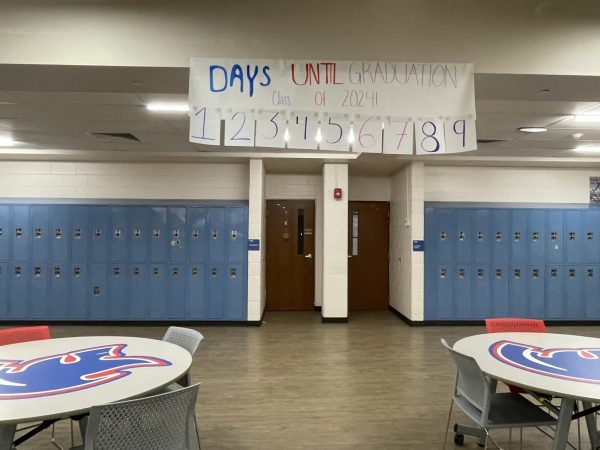
Ready or not, the clock is counting down fast, and these students are going to be launching into the world. Many felt that, although the pandemic may have robbed them of some “traditional” high school experiences/education, it gave them other, potentially more real-world ones: skills like adaptability and resilience. According to Gibson, Covid offered “a type of preparedness for ‘once in a lifetime situations.’” They believe the pandemic taught them how to be more adaptable, and how to look after themself. “If there ever were to be like some sort of once in a lifetime world changing event, I feel like I have the tools and experience to know that things are gonna go on and how to [keep going] in a way that adapts to that new world as well as keeps myself well.”
When asked, every student interviewed said they would not have wanted to repeat their freshman year in person.
Peake wanted the class of 2024 to learn how to make the most of things as a result of their high school experience. “Yes, this sucked, but look at how great we spent the last 3 years,” she said.




